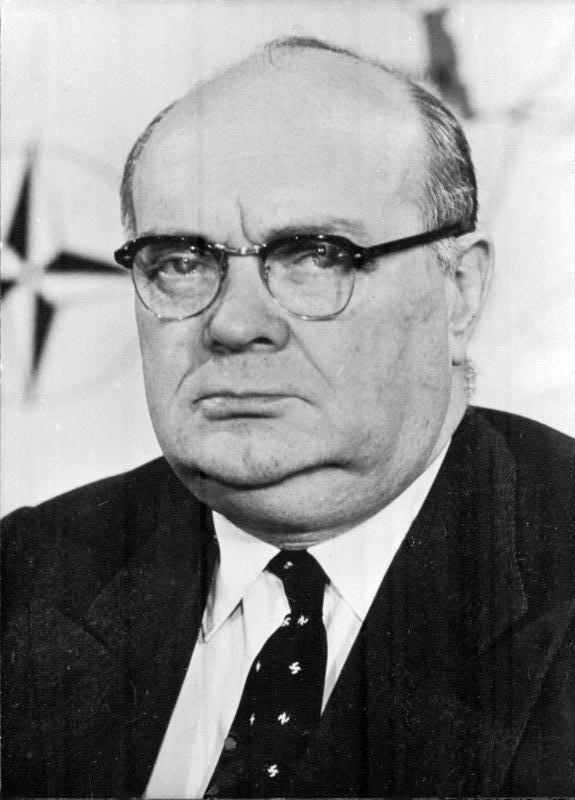Paul-Henri Spaak
- Nationality
- Belgium
- Date of Birth
- 1899
- Date of Death
- 1972
- Political
Preference - Socialist

Henri Spaak was a socialist politician who entered Belgian politics in 1932. He joined Paul van Zeeland’s government in 1935 and was Prime Minister several times in the 1940s. From 1939 onwards he served as Belgium’s Minister of Foreign Affairs, a position which he also had during the war, when the Belgian government went into exile in London.
In London, Spaak was involved in the negotiations about the creation of the Benelux. Here, he also came to favor international (economic) cooperation as the basis for the post-war international order. For Spaak, this entailed closer Western European cooperation, based on a strong transatlantic footing. In exile, Spaak connected to many of the advocates of post-war European unity, such as Joseph Retinger. Not only was he involved in the creation of the Benelux, but he was also on the Comité des Ministres des Affairès Étrangères des Gouvernements alliés, which was created in 1942 after the efforts of Retinger and Polish Prime Minister for a post-war European federation had failed to materialize.
After the war, Spaak became Prime Minister of Belgium (1946-1949). From this position her also headed the ministerial gatherings of the Organisation for European Economic Cooperation (OEEC), where he supported Averell Harriman’s proposals for a strengthening of the authority of the OEEC vis-à-vis the member states. Furthermore, Spaak served as the Chairman of the United Nations General Assembly in 1946 and 1947.
Spaak was a supporter of a supranational Europe, and was involved in several organizations where these ideas were advanced. He served as the first President of the Consultative Assembly of the Council of Europe between 1949 and 1950 and became the first President of Common Assembly of the European Coal and Steel Community (ECSC) between 1952 and 1954. From 1950 until 1955 he presided over the European Movement. Moreover, in 1955, he played an influential role in preparing the 1957 Treaty of Rome which established the European Economic Community with the Spaak-Committee. For this he was awarded the Charlemagne Prize. Between 1957 and 1961, he served as the second Secretary-General of NATO.


